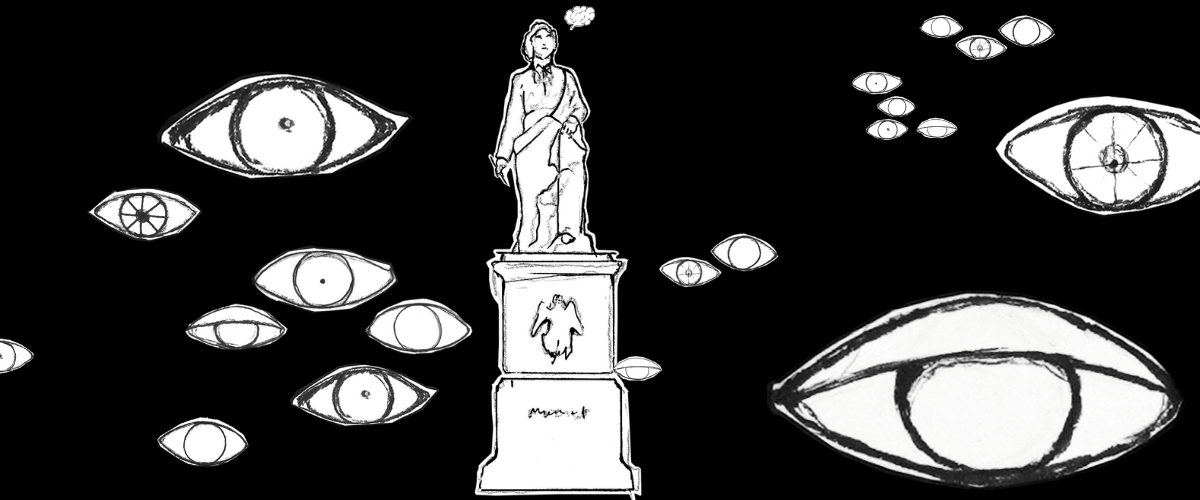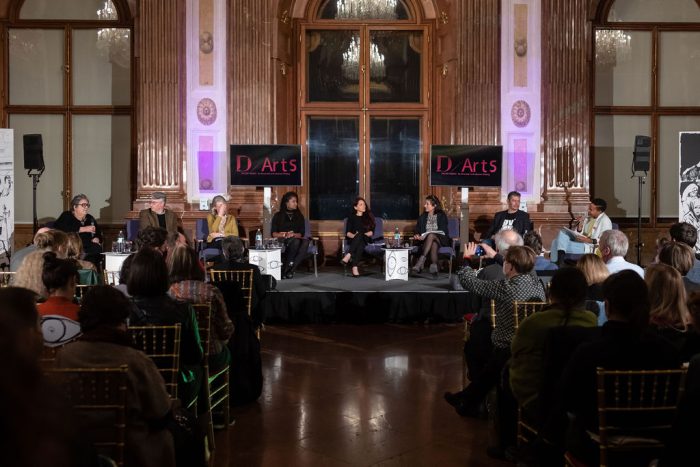“The way we organize the arts in the West needs to be rebuilt from the ground up”
Hassan Mahamdallie in conversation with Anita Moser and Ielizaveta Oliinyk
Some people still argue that the lack of diversity in the arts is partly because migrant groups don’t see the arts as a worthwhile career. But there will always be individuals who are drawn to the arts no matter what background they come from or what their parents tell them. If you are from a migrant background, as an outsider you tend to feel you have something to say to society. I come from a Muslim background and in the last ten years, I have seen increasing numbers of younger Muslims choosing the arts, regardless of their parents’ views and despite widely held stereotypes about Islam’s antipathy to the arts. Some go into spoken-word and poetry; some do film, fine arts, comedy, and some become playwrights and theatre directors.
“Quality in the arts is not an eternal, universal measure of value or excellence; it must be related to what artists are trying to do and how successful it is in relation to its audience.”
As you pointed out, the concept of art itself is a very hegemonic concept – a Western and Eurocentric concept. It is also related to the question of ‘artistic quality.’ For example, you receive public funding because your work meets certain expectations regarding quality, but the quality criteria are usually not communicated transparently. In your opinion, what should the quality criteria be?
One of the first themes when we started talking about the Creative Case for Diversity in the Arts Council of England in 2010-2011 was this question of ‘quality’, because a narrow definition of quality was used as if it were a neutral standard by which everybody could be measured. In reality it was a very subjective standard manufactured to favour some and exclude the majority. So we turned it on its head and said: no quality without diversity. And we argued that the criteria that dominated had led to the triumph of mediocrity. In other words, we had an arts funding environment in the UK where quality was used to reward people for being boring. We observed that large arts institutions were richly funded to often produce substandard work, whereas minority artists and companies were judged en masse as producing low quality work and punished, along with the minority audiences they sought to serve, suffering continual low levels of funding and even forced closure.
An inherently unequal set of criteria had been constructed to basically keep the status quo. We argued that the only criteria that should be used by funders was whether a production or project was successful in what it set out to achieve, and the quality of its engagement with its chosen audience.
Quality in the arts is not an eternal, universal measure of value or excellence; it must be related to what artists are trying to do and how successful it is in relation to its audience. The modest but perfectly executed performance for 20 kids in a city youth club can be as excellent in quality as a big production at the Royal Opera House. But it’s not only about quality or excellence in performance – there is the problem of the elitist values embedded in much art criticism, and the continued lack of diversity of background or viewpoint, or expertise, of critics as a profession.
At the event in the Belvedere Museum, you talked about the autonomy of the arts. Might it be that autonomy also means creating your own quality criteria as a marginalized group or artist?
Absolutely. And the problem is that, because of a lack of investment, we don’t really have those crucial discussions and debates within the marginalized artistic movements that we need to have. We do need to talk about issues of, for example, how we develop new forms of expression and approaches to aesthetics, but people need to produce a variety of work for those critiques to develop.
Hassan Mahamdallie, Anita Moser, Ielizaveta Oliinyk ( 2022): “The way we organize the arts in the West needs to be rebuilt from the ground up” . Hassan Mahamdallie in conversation with Anita Moser and Ielizaveta Oliinyk. In: p/art/icipate – Kultur aktiv gestalten # 13 , https://www.p-art-icipate.net/the-way-we-organize-the-arts/



 Artikel drucken
Artikel drucken Literaturverzeichnis
Literaturverzeichnis